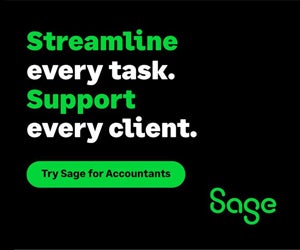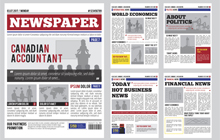Sunday News Roundup 22.11.20: Supreme Court decisions, Lysyk Laurentian, Big Box builders and more Canadian accounting news

Wrapping up the odds and ends from the past week in Canadian accounting news
Subscribe to our weekly newsletter and get all the week’s stories. Click here to sign up.
TORONTO, Nov. 20, 2022 – It is pretty rare that the Supreme Court of Canada issues to two decisions in a week of some interest to accountants. But that was the case this past week — coming two weeks after the High Court heard arguments in the Deans Knight tax avoidance case — when the Court heard one case about gifting stock options and one case about patent infringement.
First, stock options. Back in 2010 and 2011, Yves Des Groseillers, the big boss at Quebec retailer BMTC Group Inc., gave more than $3-million worth of his stock options to registered charities, and claimed the tax credits. A Quebec Court said that was just fine, which was overturned by the Quebec Court of Appeal, and the case went to the Supreme Court. In a unanimous decision, the Court dismissed the case with costs throughout, saying the options should be included in his taxable employment income, and “the value of the consideration received is deemed to be equal to the fair market value of the stock options at the time of the gift.”
Now, on to the second Supreme Court decision, and more news from the past week in Canadian accounting.
Accounting for profits: Côté dissents again in Supreme Court appeal
In case number two, Nova Chemicals finally lost its appeal of a patent infringement case, and will have to pay Dow Chemical about a half-billion bucks. Without getting too far into the weeds, here, the dispute (as explained by The Lawyer’s Daily) was “over a patent for a type of plastic used in products such as garbage bags and food wrappings.”
The case went all the way to the Supreme Court of Canada, which agreed with the lower court ruling in an 8-1 majority decision. For accountants, the case is interesting for two reasons. First, how does one calculate the profits that Nova owed Dow for patent infringement. Eight justices agreed that “accounting for profits” meant Nova had to give Dow all the money it made from selling the product, plus profits it made after the patent expired (“springboard profits”).
The second interesting aspect is that the lone dissenting opinion belonged once again to Justice Suzanne Côté, who has quite a track record of dissenting opinions. Côté argued instead for “but for” causation, which is a “could” and “would” test, the “reasoning is both appropriate and necessary when applying the differential profit approach.”
Federal Court: CRA wins Big Box big battle against underground economy
Last court case — we promise. The Financial Post reported this week that contractors should be scared, very scared, if they’ve been hiding some of that sweet home reno money under the table. Why? Because a Federal Court has ruled that Kent Building Supplies, one of J.D. Irving’s massive business empire, must hand over the data of its Kent Pro customers to the Canada Revenue Agency.
Lawyer David Piccolo, a partner at Tax Chambers whose columns have been published by Canadian Accountant, explains why the ruling is significant, and how the CRA will cross-check the Kent Pro data against the income tax filings of its customers. It will be interesting to see if the case is appealed, as we honestly don’t know if the same business practices exist elsewhere in the Big Box builders industry, but the case brings to mind the most popular column ever written by David Rotfleisch on our platform: Black Money or 'Why I can’t find workers to build my cottage.'
Lysyk lays into Laurentian financial oversight
The Auditor General of Ontario released a special report this past week on the unprecedented financial collapse of a Canadian university. The scandal at Laurentian University makes for some fascinating reading, from strange financial practices to weak oversight and questionable strategic advice. For example, Bonnie Lysyk reports that “Laurentian’s Administration did not disclose to its external auditors that the University was actively preparing to file an application for CCAA protection.”
The Ontario Auditor General found the university’s audit committee, which was responsible for Laurentian’s engagement with KPMG (its auditor since 1973), did not provide effective financial oversight; that the financial situation of the university was not clearly communicated; and that the university pursued an insolvency plan, ultimately engaging Ernst & Young through CCAA protection, rather than working with government to solve its financial crisis.
Fogo: The town that banking fo-got
Justin Hearn is a CPA, CA who runs Hearn Accounting Services on Fogo Island off the coast of Newfoundland & Labrador. Justin is also the deputy mayor of Fogo, one of several towns on the island, which has not had a bank since Scotiabank closed its branch in August.
According to the CBC, which got “chartered professional accountant” right (so many media outlets flub it), residents have to take a ferry ride and a 130-kilometre drive to Gander for banking service. Justin has taken it upon himself to lure a new bank to the town, which is picture postcard perfect but fo-gotten by financial institutions, proving bricks and mortar banking is still important, even in the days of remote.
CRA tax assessments: Objection, your honour!
Courtesy of Jamie Golombek at the Financial Post comes a reminder to all Canadian accountants and their clients that, before you file an appeal with the Tax Court of Canada, you must file a notice of objection with the Canada Revenue Agency. Golombek highlights two cases before the Tax Court that were lost by the taxpayers because they didn’t file their objections.
In one case, the CRA did not inform the taxpayer of their obligations and, in the other, the taxpayers argued that the language in their NOAs was not clear about objections. Both cases were dismissed by the Tax Court: “This court frequently contorts itself to find any written material filed on or before these ‘deadlines’ sufficient. However, it cannot transform the thin air of discussion into a written filing.”
Accounting Dealbook: PwC and BDO, KPMG
This past week, BDO Canada announced that it had acquired all of PwC’s audit, accounting and tax practice in Saskatchewan. The news didn’t send the same shockwaves that MNP’s acquisition of Deloitte’s operations in Quebec did back in 2021. Perhaps that’s because PwC Saskatchewan is fairly small for a Big Four operation — just three partners and 40 CPAs — though it’s been in business for 50 years. The firm is based in Saskatoon, of course, but has a satellite office in Humboldt, the location of a multibillion-dollar potash mine. Still, it could be considered more evidence that the Big Four are entirely willing to part ways with their accounting practices and focus instead on consulting.
Meanwhile, KPMG Canada announced it was partnering with Zú, a technology incubator hub based in downtown Montreal, launched in 2018 by the billionaire founder of Cirque de Soleil. KPMG will provide tax and consulting services to the entrepreneurs at the hub. This seems in keeping with KPMG’s forays into the frontiers of technology from cryptoassets to NFTs purchases.
Software News: Special Offer
Xero and Intel have announced a collaboration in which Canadian customers who purchase an eligible Intel vPro ® PC (desktop or laptop) will receive an exclusive offer for Xero’s cloud accounting solutions. The Intel software bundle for business provides small businesses with access to key software, extended trials, discounts and app credits worth more than $500 USD. Eligible Intel customers can access offers through the Intel Software Advantage Program* and learn more about Xero here.
And, if you're looking for software partner committed to sustainability, Xero has announced that it will build upon its emission reduction targets. The near-term targets look to reduce Scope 1, 2, and 3 emissions that align with the recommendations of the Science-Based Targets initiative (SBTi) and support the Paris Agreement goals. Xero will work towards achieving these targets by focusing on the areas of increased renewable energy uptake, being more strategic about business travel, and switching to more sustainable catering wherever possible.
Quick Hits: Articles of Interest
Canadian
Charlottetown councillors want more time to review audited financials (CBC)
In the wake of “quiet quitting”, fairness & respect seen as drivers of young accountant retention (Thomson Reuters)
All our pension funds are in trouble – we ignore this looming crisis at our peril (Globe and Mail)
Health authority report indicates fraud of $170,000 at B.C. drug treatment centre (Globe and Mail)
Ford-CUPE feud portrays Tories as ‘black-hearted accountants,’ an image which could harm federal Conservatives (The Hill Times)
Bank of Canada poised to lose money for the first time on rising interest expenses (Globe and Mail)
The Bank of Canada is blaming employed workers and higher wages for inflation — why isn’t it concerned about surging corporate profits? (Toronto Star)
International
Audit Firms Brace for Tougher Quality Oversight Mandates (Bloomberg Tax)
EU accused of climate accounting tricks (Politico)
By Canadian Accountant staff.







(0) Comments